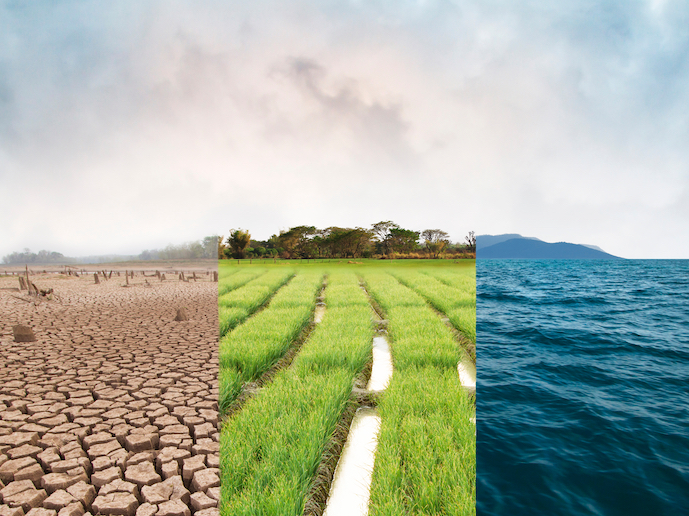Analysing complex socio-economic interactions to improve our ability to tackle climate change
The consequences of climate change are rendered even more complex and challenging to predict when coupled with rapid and uncertain socio-economic changes, such as population growth, technological advances, and shifting international cooperation. Taking this complexity into account, the EU-supported IMPRESSIONS project applied a cross-sector approach to identify effective pathways for climate action, efficacious across a range of multi-scale case studies. Analysis of these pathways showed that beyond the 2 °C (above pre-industrial levels) threshold, conventional solutions may prove insufficient. Rather, transformative solutions which adopt radically different institutional arrangements, leveraging synergies between adaptation and mitigation efforts and linked to sustainable development, become paramount. Adaptation, mitigation and transformation pathways The participatory approach of IMPRESSIONS involved in-depth interviews, workshops and online engagement with decision-makers, to reveal what tools and knowledge they needed. Stakeholders were then asked to co-create a vision of a sustainable future for each of five case studies – selected to represent different scales, sectors and regions of Europe – for the year 2100. The vision described aspirations for governance, energy, social equity, living and lifestyles, the environment and other factors essential to human well-being. Stakeholders also co-created pathways of actions for achieving the vision (regarding people, nature, markets or technology). The robustness of the pathways was explored using four scenarios reflecting potential, future socio-economic development. These involved: a commitment to sustainability; conflict for resources; increased inequality; and fossil-fuelled development. These scenarios of changes to socio-economic drivers (demographic, technological or political) were paired with climate scenarios based on the Intergovernmental Panel on Climate Change Representative Concentration Pathways (RCPs). IMPRESSIONS applied a multi-scale modelling framework, developed by the team, to analyse the complex interactions, synergies and trade-offs between different sectors such as: agriculture; forestry; biodiversity; urban development, and health and tourism as they compete for resources under the impaired climate and socio-economic scenarios. The resultant simulations of the likely cross-sector impacts indicated whether the system was becoming more or less sustainable under each scenario. Further modelling and qualitative analyses then evaluated how effective the chosen pathways would be at meeting sustainability goals under different scenarios. “This resulted in a set of three pathways for climate action common to all case studies: sustainable lifestyles through education and awareness raising; good governance for sustainability and climate resilience that is participatory and transparent, and integrated and sustainable resource management that ensures both resource security and environmental protection.” says project coordinator Prof. Paula Harrison. Making decisions when scientific information is uncertain A key finding of IMPRESSIONS was that benefits in some regions and sectors are offset by detrimental effects in others. For example, increases in agricultural and forest productivity in northern Europe are offset by severe water scarcity and loss of productivity in southern Europe and parts of central and eastern Europe. “Our research demonstrated that all impacts are more severe under higher levels of climate change. As adaptation pathways alone cannot avoid them, mitigation – alongside early action - is also essential,” says Prof. Harrison. IMPRESSIONS will inform decision making and policy development in key areas, such as the EU Adaptation Strategy, Water Framework Directive, Biodiversity 2020 and the Floods Directive, as well as for meeting international commitments, such as the Paris Agreement and the Sustainable Development Goals. The approach and results are presented on the High-End Solutions Information Hub.
Keywords
IMPRESSIONS, climate change, environment, simulations, sustainable, adaptation, mitigation, biodiversity, participatory







